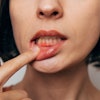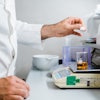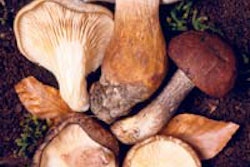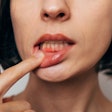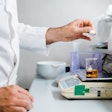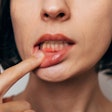
The market for "natural" products has grown steadily in recent years, and the interest in such products has extended into dentistry.
During a presentation at the recent California Dental Association (CDA) fall meeting in San Francisco, Ann Eshenaur Spolarich, RDH, PhD, an author and clinical professor at the Ostrow School of Dentistry of the University of Southern California (USC), sought to help dentists, hygienists, and assistants find ways to respond to patient questions about natural products.
"There has been a lot of growth in these products in dentistry over the past 10 years," she said. "Have you scoured the oral care aisle lately? The array of products and those touting natural ingredients are growing not only in big box stores like Target and Walmart, but small pharmacies too. I recently came across a chamomile denture cleaner! And you may get questions about these things."
Hands went up around the room when she asked the audience if anyone had received questions about natural products or if patients had brought them into the office to get an opinion about them.
“There has been a lot of growth in these products in dentistry over the past 10 years.”
"We see this push in society to maintain health and wellness, as people are living longer, and there's a real push for 'going natural,' " she said. "Consumers want minimal environmental impact -- packaging that is not excessive and is made from recycled materials, for example -- and products that are free from chemicals, artificial ingredients, dyes, and preservatives. They are more conscious about what is put into their bodies."
But patients should know that the U.S. Food and Drug Administration (FDA) has different regulations for a lot of these products. Many fall under food or cosmetics categories and are not even in the same category as most oral care products. Additionally, supplements for oral health often have broad directions in their labeling. For example, a set of directions may read, "Use a capful of 'product X' to freshen you breath."
"Herbal products regulated as supplements have controls for quality and labeling, but no requirement for testing for safety," Eshenaur Spolarich explained. "Legislation requires that product labels do not make therapeutic claims, but they may include 'structure and function' claims."
Plant extracts are not recognized as active drug ingredients by the FDA. However, some herbal products are scientifically studied and their effects are known, she added.
Eshenaur Spolarich covered several natural ingredients that may be found in oral care products and discussed their uses. Her comments can give dental professionals a place to start when patients ask for natural product recommendations:
- Tea tree oil is mostly used in dermatologic products. However, it is also an oral deodorant and has been shown to have an effect on Lactobacillus species and others associated with periodontal disease. And there is "decent data against oral herpes," Eshenaur Spolarich said.
- Aloe has anti-inflammatory, antibacterial, antifungal, and antiviral properties. "In vitro studies have shown inhibition of Streptococcus pyogenes, Streptococcus faecalis, Candida albicans, and herpes simplex virus I and II," Eshenaur Spolarich said. "And it can prevent the development of alveolar osteitis following third molar extractions."
- Calendula is from the marigold family, and "the best data are for its antitumor properties," Eshenaur Spolarich said. "It is also an anti-inflammatory known to reduce swelling."
- Echinacea may possess microbicidal activity. "But anyone with any kind of immune system dysfunction should not use it," Eshenaur Spolarich warned. "Cancer patients, for example, should think twice about it since it is toxic to the liver. In dentistry, it will be used topically."
- Glycerin-based products can be used to treat certain indications of xerostomia. "Not all dry mouth is created equal," Eshenaur Spolarich noted. "[Glycerin] can help people with lots of water volume but not the staying power. It helps with the coating ability." But it can make those who lack water volume feel worse, she cautioned. These products are often sourced from coconut or palm.
- Goldenseal may have an antibacterial effect, and while there is some compelling evidence for it, it is not found in a lot of oral care products at this time, she explained.
- Grapefruit extract has weak evidence documenting efficacy for any indications, but it is still found in many natural products. The extract comes from seeds.
- Sage is similarly lacking in terms of research documenting its efficacy for various indications.
- Peppermint has been the reported cause of oral mucosal lesions after the use of mouthwashes that contain it. "Oral mucosal burn has been reported with the topical use of peppermint oil," Eshenaur Spolarich said.
